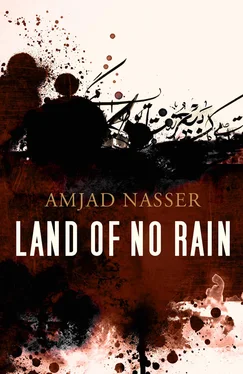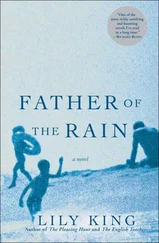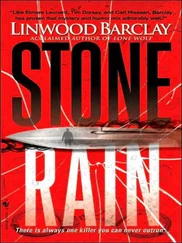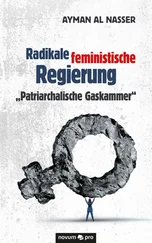Amjad Nasser
Land of No Rain
Here you are then, going back, the man who changed his name to escape the consequences of what he’d done. It’s been a long time since you left, and that was an event that mattered only to the few who took an interest in your case. As usual, those few are constantly declining in number. You’re not sure what’s left of the flame that burned deep inside you in the days of youth and hope. Your feet have worn out so many pairs of shoes, roaming the streets, walking along dirt paths and paved roads. How many more steps must they take? How much more emotion can your heart muscle handle? What’s left that will still excite you? Does the smell of coffee still promise mornings that haven’t come? After looking in different directions for so long, will your eyes ever finally converge on the same point? Can you still believe that lie about how cute your cross-eyes are, a lie uttered one day long ago by rosy lips that you were the first to taste? Your eyes are like you. Whenever you look, you have to force them to work together. You were about to ask yourself: on the spiral, or circular, pathway that leads back to the start, who lost and who gained? This question nags you. Another question nags you too, but you’ve never given it a chance to take shape in your head: did you take the wrong path? It’s hard not to ask such questions in a situation such as yours, although you learned in your long exile how to suppress questions you don’t like and how to dodge them by procrastination or equivocation. But from now on there can be no more procrastination or equivocation. There was a time when you didn’t notice time creeping along the ground and through your body, but now the sound of it is clearly audible.
Everything is endless but nothing remains as it is. That’s a lesson your hand has learned, right down to the bones and the nerves; the hand that no longer shakes the air like a fist of bronze, but hovers uncertainly — with bulging veins — over the table, the hand that has to reassess dimensions and sizes, heaviness and lightness. Have you noticed how unsteady it is when you shake hands with people, give directions or touch things? Perhaps not, because against the background noise of flesh and blood, you cannot hear that mysterious and perfidious pickaxe chipping away, as the stones of the fortress start to work loose from the inside. But the rasping noise of that pickaxe comes straight from the lungs. It cannot always be muffled with the palm of a hand or a pocket handkerchief.
Where will you begin your long story, or rather your many stories that overlook each other like the rooms of an old Arab house? You don’t know exactly, because the years and events, the faces and voices, are mixed up in your memory. The officers who questioned you at the National Security Agency imposed a sequence of events on you, one that might be better organised from a chronological point of view. But you cannot use the records lying in the drawer assigned to you in that star-shaped stone building. Besides, those cold bureaucratic records are not interested in your inner world, your motives, what lies between the superimposed layers of your self. Those records contain no monologues, no waking dreams, no nightmares, no echoes, no convolutions; only uniformity, a regularity, a linear sequence of events and names. Where among them can you find your mother’s soft footsteps at night, as she hovers over the blankets spread on the floor, covering this son or that daughter, opening or closing the windows, rising before anyone else in the morning so that they can wake to the smell of coffee and fresh bread? Where is your father’s tall, lean frame, a cigarette hanging from his lip, and his inks, pens and calligraphies that explore the expanses of creation? Where are his leisurely footsteps as he descends the twelve steps to his underground temple? Where are your noisy brothers and kindly sisters? Where is your grandmother’s winged shadow, and your grandfather, sitting up straight as a bolt, who stopped writing out those proverbs and sayings when his eyesight started to fade? Where are the faces that somehow imprinted their features on your memory for ever, and the faces whose details have been erased and whose ghostly passage across the screen of your memory keeps you awake at night? Where are the smells that mysteriously preserve the images and feelings you secretly treasure? Where are the pavements, the cold, life when it became just a lucky coincidence, the skies as low as a wall of grey, the long sleepless nights, the cough, the stubborn hopes, the dancing lights of return? There’s nothing of all that in those reports, so dry that the paper crinkles, because these are things that don’t interest them. These things are useless when the accounts are settled and the harvest is weighed. You didn’t answer some of the interrogators’ questions, or you responded vaguely and coldly to the questions that no longer interested you. In short, that was the version of the story they wanted, to fill the gaps in their files, not your rambling, tangled story.
So begin here, although it may not be the right beginning, but every story needs to start somewhere.
* * *
It came to pass that a plague, reminiscent of an ancient pestilence, swept the City of Red and Grey. You recall the panic that gripped that great conurbation, built of red brick under grey skies. The anarchy. The breakdown in law and order. The great convulsion that affected everything. Because the plague had come almost without warning. Some people attributed it to the large numbers of immigrants, especially those from impoverished countries, and to the crowded slums or asylum camps. Others said the plague was latent in the fabric of the city itself and needed only a catalyst for it to spread. The plague’s black wing touched your wife, whom you had met on the Island of the Sun.
You almost perished at the hands of outlaws more than once. Most of your neighbours fled the working-class area where you lived. You don’t know what happened to them. The doors of their houses were pulled off their hinges. Some of them were set on fire, some were looted. You found the immigrant grocer who used to sell you goods on credit — although such a practice was unknown in this city — lying in front of his looted shop, his mouth agape as if screaming. So many perished in that unexplained plague, including some of your professional colleagues and some of your drinking companions.
Images of those struck down by the plague — in the streets, in the quarantine centres, at bus stops and on the underground — recur from time to time: of your wife looking at you with weary eyes from behind a glass screen; of the cough that tore the lungs, spitting blood; the almost primitive emotions and behaviour that people exhibited; the face masks that made people look like highwaymen; the X-signs written on walls in thick black ink to distinguish one house from another; the codes used in conversations, none of which you understood; and the weird way that people spoke, as if from the guts and not from the throat.
This memory, or nightmare, recurs time after time. You took backstreets to visit your wife in quarantine in the city centre, which was orderly compared with the suburbs where things had slipped out of control. Three masked men had pounced on you out of the blue. You were carrying a bag with some food in it. They brandished knives and the sharp blades glinted in the tense space between you and them. They told you to put the bag on the ground, that if you wanted to escape with your life you should leave the bag and step aside. You did so. What they found in the bag didn’t satisfy the savage eyes behind the masks. They ordered you to give them all the cash you were carrying. You threw your wallet at them from a distance.
Читать дальше












